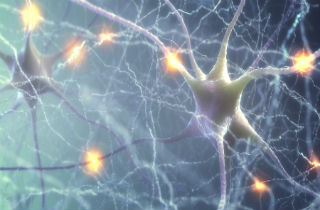Is there a silver bullet in addiction treatment?
While administrations, starting with the Reagan presidency, have grappled with the War on Drugs, the medical profession has for decades sought a “silver bullet”: something that will successfully and permanently disrupt the physical as well as the psychological cycle of addiction.
For the most part, the emphasis has been on developing a drug that will reduce cravings to use to a manageable level. Refinements in Cognitive Behavior Therapy (CBT) such as treating compulsive thinking are the main complement to the pharmaceutical approach. However, in the last two decades, a third line of investigation has made inroads into the field: neurofeedback therapy.
How does Neurofeedback Therapy work?
Neurofeedback therapy involves monitoring of a patient’s brain via electroencephalography (EEG). EEG measures electrical activity by means of electrodes attached to the scalp. Voltage fluctuations generated by the brain convey information that clinicians can interpret in terms of deviation from a baseline of established normal function. The feedback component assists the patient in nudging these deviations back toward baseline. On the assumption that the deviations represent neural tendencies that will generate relapse, a realignment toward baseline should diminish the chances of a renewed desire to resume consumption of the substance in question (different categories of substances display different abnormalities via EEG).
Neurofeedback for alcoholics and drug addicts
Because alcoholics and drug addicts have been shown to have significant alterations in their EEG patterns after detox, it is clear that that two dynamics are operative: 1) there are neurological consequences to drug and alcohol abuse; and 2) there are genetic factors that put some people at greater risk for addiction.
Once this risk component is fulfilled by experimentation and repetition, addiction logically follows, accompanied by impairments of cognitive function (as well as emotional and behavioral). The impairments are so severe that it is common to speak of the brain as being “hijacked,” thus the addict’s inability to bring to mind the consequences of his or her drug-related behavior. This inability to put the problem in perspective means that there is no inhibitory mechanism to stop the addict from continuing or resuming the addictive behavior.
The abnormalities in addicts’ brainwaves correspond to feelings of discomfort — negative emotions, anxiety, depression, inappropriate fight-or-flight impulses, etc. — which the addict treats with the substance of choice. This self-medication works to an extent, but eventually starts to generate its own set of problems that exacerbate the original condition the addict is trying to treat.
Neurofeedback corrects brain states related to addiction
The success rates for neurofeedback therapy appear to be promising, especially when combined with other standard modalities (psychological and psychopharmacological approaches, CBT, 12-step followup, etc.). Neurofeedback therapy trains the recovering addict to recognize certain counterproductive brain states and to “correct” them, at least to some degree, such that they don’t motivate behavior. Essentially, neurofeedback therapy is training in self-regulation, allowing the addict to develop coping skills and reducing the risk of relapse.
Initially, it is highly useful immediately after detox, when the addict is emotionally raw and defenseless. This is when, without appropriate treatment, the addict is most likely to seek relief by resuming drug use. Neurofeedback therapy in a treatment environment can help during this critical period, as it can help diminish the addict’s impulse to abandon treatment.
Questions about neurofeedback
Do you have questions about this treatment modality? Please leave your questions or comments in the section below. We do our best to respond to all legitimate queries personally and promptly.









Related Posts